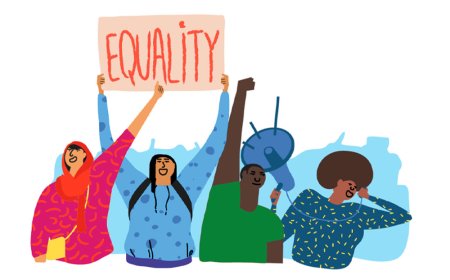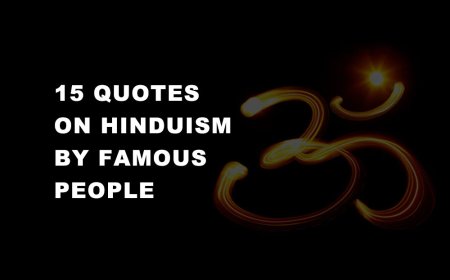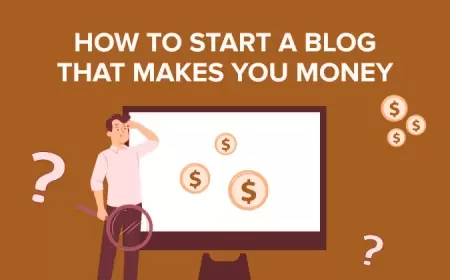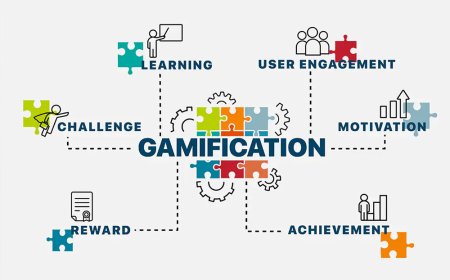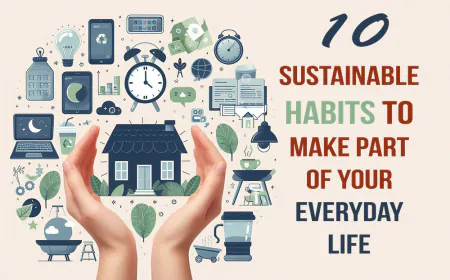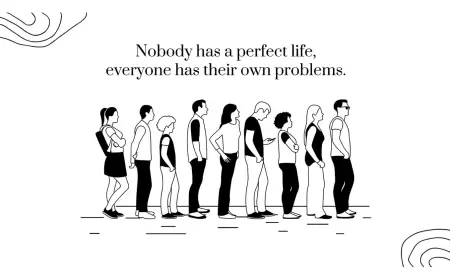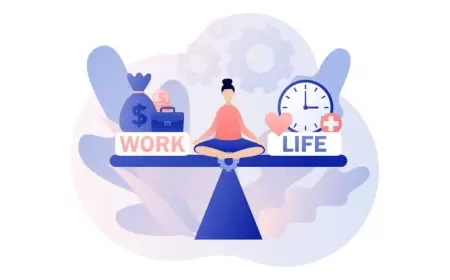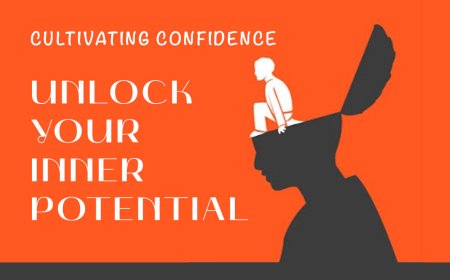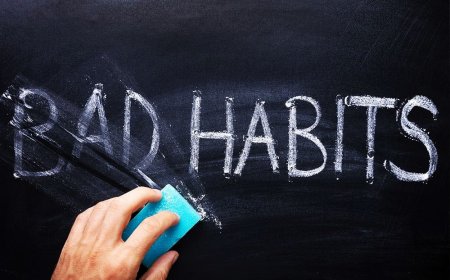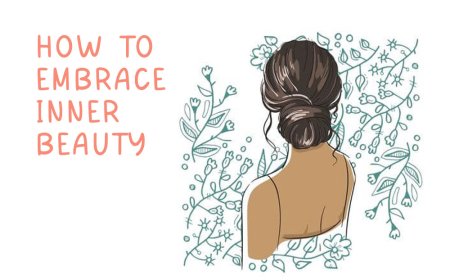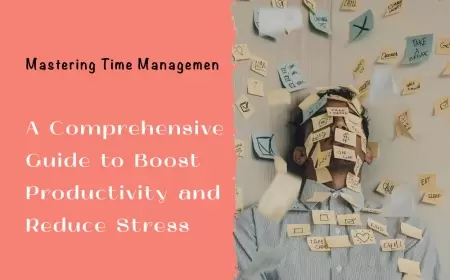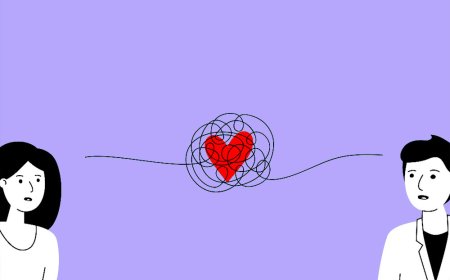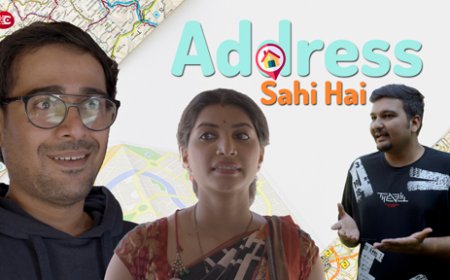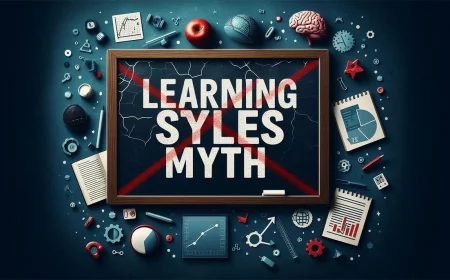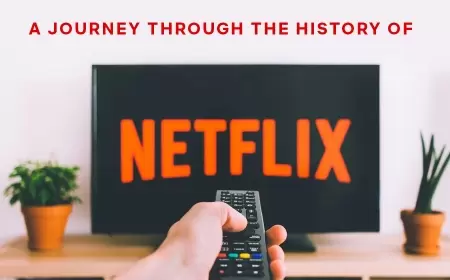5 Common Beliefs That Are Holding You Back in Life (And the Truth Behind Them)
From the moment we take our first breath, society begins programming us with a complex web of beliefs about success, happiness, relationships, and what it means to live a "good life." Our parents, teachers, media, and peers all contribute to this invisible blueprint that guides our decisions, shapes our self-worth, and defines our limitations.

From the moment we take our first breath, society begins programming us with a complex web of beliefs about success, happiness, relationships, and what it means to live a "good life." Our parents, teachers, media, and peers all contribute to this invisible blueprint that guides our decisions, shapes our self-worth, and defines our limitations.
But here's a uncomfortable truth: much of what we've been taught is not only wrong—it's actively sabotaging our potential for genuine fulfillment and success.
What if everything you've been told about success, happiness, or love is wrong? What if the very beliefs you've built your life around are the chains keeping you from the freedom, joy, and achievement you truly desire?
Today, we're going to challenge five deeply ingrained beliefs that sound motivational and practical on the surface but are toxic lies that limit your potential. Prepare to have your worldview shaken—because sometimes, the most liberating thing you can do is question everything you think you know.
Belief #1: "You Have to Be Busy to Be Successful"
The Lie: Our culture has turned busyness into a badge of honour. We glorify the 80-hour work week, celebrate sleep deprivation, and equate a packed calendar with importance and productivity. Social media amplifies this with endless posts about "grinding" and "hustling." We've been conditioned to believe that if we're not exhausted, we're not working hard enough.
The Truth: Productivity doesn't equal busyness—it's about focus and value creation. Research from Stanford University shows that productivity per hour declines sharply when a person works more than 50 hours a week. After 55 hours, productivity drops so much that putting in any more hours would be pointless.
Proof/Example: Warren Buffett, one of the world's most successful investors, famously keeps a relatively simple schedule. He spends most of his time reading and thinking, not rushing between meetings. Bill Gates has said, "I never took a day off in my twenties. Not one. And I was wrong about that." Even Amazon's Jeff Bezos prioritises getting eight hours of sleep, saying he makes better decisions when well-rested.
A study published in the Harvard Business Review found that employees who took regular breaks and vacations were 31% more productive and had 37% better sales performance than their "always-on" counterparts.
Takeaway: Shift from measuring your worth by how busy you are to measuring it by the value you create. Schedule downtime like you would an important meeting. Practice saying "no" to activities that don't align with your core goals. Remember: being busy is easy—being effective is what matters.
Belief #2: "Follow Your Passion and You'll Never Work a Day in Your Life"
The Lie: This feel-good advice suggests that there's one perfect career waiting for you, and once you find it, work will feel effortless and joyful every single day. It implies that if you're struggling or feeling unfulfilled at work, you simply haven't found your "true calling" yet.
The Truth: Passion often follows mastery, not the other way around. Most successful people didn't start with a burning passion—they developed it through competence, autonomy, and purpose. Research by psychologist Carol Dweck shows that believing you have a fixed passion can limit your potential for growth and satisfaction.
Proof/Example: Steve Jobs, often cited as the poster child for "following your passion," actually started Apple not because he was passionate about computers, but because he saw a business opportunity. His famous Stanford commencement speech about "following your passion" came after he had already built expertise and found meaning in his work.
Cal Newport, author of "So Good They Can't Ignore You," studied hundreds of career trajectories and found that people who focused on building rare and valuable skills (rather than chasing passion) were more likely to end up loving their work.
A study by researchers at Stanford and Yale found that people who believed passion is something you find (rather than develop) were more likely to give up when faced with challenges and reported lower overall career satisfaction.
Takeaway: Instead of searching for your passion, focus on developing expertise in areas where you have natural talent or growing market demand. Ask yourself: "What valuable skills can I develop?" rather than "What am I passionate about?" As you become excellent at something meaningful, passion often follows naturally.
Belief #3: "You Need to Think Positive to Be Happy"
The Lie: The positive thinking movement tells us that we can manifest our reality through optimistic thoughts alone. We're told to "choose happiness," suppress negative emotions, and maintain a positive attitude at all costs. This has created a culture where expressing sadness, anger, or frustration is seen as weakness or failure.
The Truth: Emotional authenticity and resilience come from accepting and processing all emotions, not just the pleasant ones. Research shows that people who try to suppress negative emotions experience more anxiety and depression. True mental health involves emotional flexibility—the ability to feel what you feel without judgment.
Proof/Example: Dr. Susan David's research at Harvard Medical School reveals that people who practice "emotional agility"—acknowledging difficult emotions without being controlled by them—have better mental health, stronger relationships, and greater career success than those who practice forced positivity.
Studies published in the Journal of Personality and Social Psychology found that people instructed to suppress negative emotions while watching disturbing films showed increased stress responses and had trouble forming connections with others afterwards.
Barbara Ehrenreich, author of "Bright-sided," argues that the pressure to maintain positive thinking can actually prevent people from taking necessary action to improve their circumstances, creating a form of learned helplessness disguised as optimism.
Takeaway: Practice emotional acceptance instead of emotional suppression. When you feel negative emotions, get curious about them rather than trying to push them away. Ask: "What is this emotion trying to tell me?" Use techniques like journaling or talking with trusted friends to process difficult feelings rather than bypassing them with forced positivity.
Belief #4: "You're Either Born With Talent or You're Not"
The Lie: We live in a culture obsessed with "natural talent" and "gifted" individuals. From childhood, we're sorted into categories—smart or average, athletic or clumsy, creative or logical. This fixed mindset makes us believe that our abilities are set in stone and that effort is a sign of inadequacy rather than growth.
The Truth: Neuroplasticity research shows that our brains can form new neural pathways throughout our entire lives. The concept of "deliberate practice"—focused, goal-oriented effort with feedback—can help anyone develop expertise in virtually any domain. What we call "talent" is often just the result of early exposure, quality practice, and persistence.
Proof/Example: Michael Jordan was cut from his high school basketball team. Albert Einstein didn't speak until he was four years old and was considered learning disabled. These aren't feel-good stories—they're evidence that initial performance is a poor predictor of ultimate potential.
Anders Ericsson's research on deliberate practice found that expert-level performance in any field requires approximately 10,000 hours of focused practice, regardless of starting ability. His studies of violinists, chess players, and athletes consistently showed that the highest performers had simply accumulated more quality practice time.
A Stanford study following students over several years found that those taught about brain plasticity and growth mindset significantly outperformed their peers who believed ability was fixed.
Takeaway: Replace "I'm not good at this" with "I'm not good at this yet." Focus on the process of learning rather than comparing yourself to others. When you face setbacks, ask "What can I learn from this?" instead of "Maybe I don't have what it takes." Celebrate effort and progress, not just outcomes.
Belief #5: "More Options Mean More Freedom and Happiness"
The Lie: Modern consumer culture tells us that having unlimited choices is the key to satisfaction and freedom. We're told that more career options, relationship choices, lifestyle possibilities, and consumer goods will make us happier. The fear of "missing out" drives us to keep all doors open rather than committing to any particular path.
The Truth: Research consistently shows that too many options lead to decision paralysis, increased anxiety, and decreased satisfaction with our choices. Psychologist Barry Schwartz calls this "the paradox of choice"—when we have too many options, we become less likely to choose at all, and when we do choose, we're less satisfied with our decision.
Proof/Example: A famous study by Sheena Iyengar found that shoppers presented with 24 varieties of jam were less likely to purchase those presented with only 6 options. When they did buy, those who chose from fewer options reported greater satisfaction with their choice.
Dating apps provide a real-world example of choice overload. Despite having access to thousands of potential partners, studies show that people using dating apps report lower relationship satisfaction and higher levels of anxiety than those who meet partners through traditional means.
Countries with fewer career options often report higher levels of life satisfaction than those with unlimited possibilities. Denmark consistently ranks as one of the world's happiest countries, partly due to cultural values that emphasise contentment over constant optimisation.
Takeaway: Practice "good enough" decision-making for non-critical choices. Set constraints for yourself—limit your job search to 5 companies, your apartment search to 3 neighbourhoods, your dinner options to 2 restaurants. Use the time and mental energy you save from endless comparison shopping to deepen your engagement with the choices you do make.
Conclusion: Time to Audit Your Beliefs
These five beliefs are just the tip of the iceberg. Each of us carries dozens of inherited assumptions about money, success, relationships, happiness, and self-worth that may be silently sabotaging our potential. The most successful and fulfilled people aren't necessarily the smartest or most talented—they're the ones who regularly question their assumptions and adjust their beliefs based on evidence rather than tradition.
Living with conscious awareness means becoming the editor of your belief system. It means asking uncomfortable questions: "Why do I believe this?" "Where did this belief come from?" "Is this belief serving me or limiting me?" "What would change if I believed something different?"
The truth will sometimes be uncomfortable. Challenging deeply held beliefs can feel threatening because these beliefs often form the foundation of our identity. But here's what's on the other side of that discomfort: freedom, authenticity, and the ability to create a life based on your values rather than society's outdated programming.
Your beliefs shape your reality. Choose them wisely.
Remember: The goal isn't to replace old beliefs with new dogma—it's to develop the skill of conscious belief selection. Question everything, including what you read here. Your life is too important to live on autopilot.
What's Your Reaction?
 Like
0
Like
0
 Dislike
0
Dislike
0
 Love
0
Love
0
 Funny
0
Funny
0
 Angry
0
Angry
0
 Sad
0
Sad
0
 Wow
0
Wow
0











